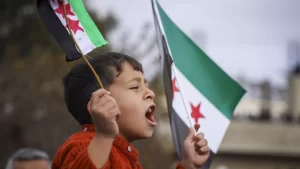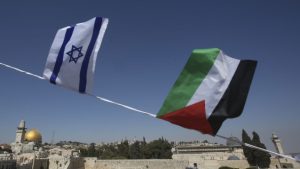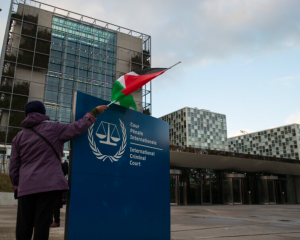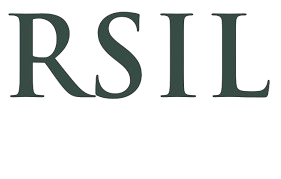Last Three Years Without serious consequence: Overview of the nature and Challenges of Russia’s War Against Ukraine under The International Law Perspective. PART I
Brief introduction
In early September, a Russian missile and drone attack on the Ukrainian city of Lviv, far from the front line, killed a mother, Yevheniia Bazylevych, and her three daughters, Yaryna, Dariia and Emiliia.
In total, Russia has killed 573 children since the full-scale invasion of Ukraine on 4 September, when the attack on Lviv took place, and the number is growing every day. In the Russian-occupied territories of Ukraine, massive and systematic forced displacement and deportation, political indoctrination and militarisation of Ukrainian children are taking place with the aim of destroying their Ukrainian identity. Therefore the first arrest warrant in the history of the International Criminal Court against the president of a state that is a permanent member of the UN Security Council was issued against Vladimir Putin for war crimes against Ukrainian children, for their forced displacement and deportation.
It is therefore surprising that in the third year of Russia’s full-scale aggression against Ukraine, the aggressor has not yet been punished. Is international law working in this case? However, before starting with this controversial topic, there should be other questions, such as: When did the international armed conflict caused by Russia’s aggression against Ukraine begin? How does international law qualify Russia’s actions? Why have Russia’s violations of international humanitarian law become part of its war policy? Who is documenting the war crimes committed during the Russian aggression against Ukraine? How does Ukraine ensure the implementation of IHL? What international mechanisms are used to hold Russia accountable for its aggression and gross violations of international humanitarian law?
In these two entrances, we will try to show the scope of the Russian War against Ukraine and how international law has been smashed by the real politick and its uses during this armed conflict.
When did the international armed conflict caused by Russia’s aggression against Ukraine begin?
The actual date of the beginning of Russia’s aggression against Ukraine is 19 February 2014, when Russia began its illegal occupation of a part of the internationally recognised Ukrainian territory – Crimea. From that date on, the seizure of Ukrainian facilities in Ukraine’s maritime space began, followed by the seizure of Ukrainian government offices in Crimea and the illegal occupation of the peninsula and attempted annexation.
Subsequently, in the spring of 2014, Russia used irregular formations and armed forces against Ukraine in eastern Ukraine, leading to active hostilities and Russia’s illegal occupation of certain areas of the Donetsk and Luhansk regions of Ukraine. The ongoing illegal occupation of Crimea by the Russian Federation and the hostilities in eastern Ukraine have been going on for years and have become a precondition for Russia’s subsequent full-scale invasion of Ukraine on 24 February 2022. This war has been characterised by high intensity, large number of casualties among Ukrainian civilians and combatants, the revival of imperialist and colonial motives on the part of Russia, Russia’s attempted annexation of Ukraine and numerous war crimes committed by the Russian armed forces and the Russian occupation authorities.
Eurasian country’s armed aggression against Ukraine is aimed at destroying the modern system of international law and order, has led to significant geopolitical risks for Europe and the world, the destruction of the global food security system, and is accompanied by significant environmental impacts at regional and global levels.
How do Russia’s actions qualify under international law?
Since 2014, Russia’s actions against Ukraine have violated all ten basic principles of international law regarding Ukraine, bilateral and multilateral agreements on the territorial integrity and independence of Ukraine, the recognition and inviolability of Ukraine’s borders, and the prohibition of the use of force in international relations.
On the basis of the 1974 UN Resolution “Definition of Aggression”, Russia has committed aggression against Ukraine in violation of the peremptory prohibitions of the UN Charter. The illegality of Russia’s acts of aggression against Ukraine has been condemned by numerous declarations of states and resolutions of international organisations, including the UN General Assembly Resolution on the Territorial Integrity of Ukraine adopted on 27 March, 2014.
According to international humanitarian law, occupation without armed resistance also constitutes an international armed conflict (Common Article 2 of the Geneva Conventions of 12 August 1949). Thus, an international armed conflict began in February 2014, caused by Russia’s aggression against Ukraine.
By holding an illegal referendum in the territory of the illegally occupied Crimea on its accession to Russia, in accordance with international and national law, it also attempted to annex part of the territory of Ukraine in violation of the peremptory prohibitions of international law.
The illegal occupation regime also extended to certain districts of the Donetsk and Luhansk regions of Ukraine seized by Russia. As a continuation of these actions, Russia launched a full-scale invasion of Ukraine on 24 February 2022, marking a new stage in the ongoing international armed conflict that began in 2014. The UN General Assembly Resolution of 18 March 2022, “Aggression against Ukraine”, condemns Russia’s aggression against Ukraine and calls on Russia to fully withdraw its troops from the territory of Ukraine. By the resolution ‘Territorial integrity of Ukraine: defending the principles of the Charter of the United Nations’ of 13 October 2022, the UN General Assembly condemns the organization by the Russian Federation of illegal so-called referendums in regions within the internationally recognized borders of Ukraine and the attempted illegal annexation of the Donetsk, Kherson, Luhansk and Zaporizhzhia regions of Ukraine, following the organization of the referendums mentioned above.
Since 2014, Russia has committed grave breaches of international humanitarian law against civilians on a massive scale in the form of direct attacks, killings, torture, unlawful detention, killings and torture of Ukrainian prisoners of war, indiscriminate and disproportionate attacks on Ukrainian cities, environmental destruction, use of prohibited methods and means of warfare, and forced displacement and deportation of civilians. Russia’s actions also constitute crimes against humanity and bear the hallmarks of genocide against the Ukrainian people.
Russia’s war against Ukraine is clearly imperialist in nature, given its historical colonial context, beginning with the Russian Empire and the Soviet Union.
Why have Russia’s violations of international humanitarian law become part of its war policy?
As of September 2024, approximately 140,000 criminal cases related to war crimes committed by Russian agents have been registered in Ukraine. Russian attacks on civilian targets, including energy infrastructure, have been the subject of an investigation by the International Criminal Court, and arrest warrants have been issued for Russian military leaders. Another alleged war crime addressed by the ICC is the forced transfer and deportation of Ukrainian children.
Almost every Ukrainian prisoner of war is subjected to war crimes, ranging from the killing of Ukrainian soldiers who surrender, murder in captivity, torture, sexual violence, ill-treatment, starvation and lack of medical care. Russia violates almost all the norms of the Geneva Convention Relative to the Treatment of Prisoners of War of 12 August 1949, as reflected in numerous documented facts and reports by international organisations. The most prominent case is the brutal mass murder of Ukrainian POWs at Olenivka, which UN and ICRC representatives were not allowed to investigate.
Russia is committing similar grave breaches of international humanitarian law against the civilian population in the illegally occupied territories of Ukraine, including the killing of civilians, illegal detention, torture, sexual and gender-based violence, the use of human shields and forced mobilisation. All these crimes against humanity and war crimes have been reflected in numerous journalistic investigations, and the names of Ukrainian towns such as Bucha, Irpin and Izium have become symbols of Russian war crimes. Russia has created a system of torture chambers in the illegally occupied territories, exemplified by the Kherson torture chambers. The village of Yahidne in northern Ukraine became an example of the use of human shields by the Russian military – more than 350 civilians, mostly elderly people, women and children, were forcibly held in the basement of a school near the village by the Russian occupying forces.
In more than 30 months of a full-scale invasion, Russia has destroyed 221 Ukrainian medical facilities and damaged another 1657. The Russian military has deliberately targeted Ukrainian military and civilian medical personnel. In July 2024, Ukraine’s largest children’s hospital, Ohmatdyd, was targeted by a Russian missile attack, killing two people and injuring about 300, including children and medical staff. On 12 September, Russian artillery shelling of an ICRC truck killed three of its staff and injured two others. Medical and humanitarian personnel and facilities are under special protection under international humanitarian law, and deliberate attacks against them constitute war crimes.
Russia is committing cultural genocide against the Ukrainian people. Numerous attacks and destruction, theft and appropriation of Ukrainian cultural heritage, murder of Ukrainian national identity bearers, militarisation and political indoctrination of Ukrainian children in the territories of Ukraine illegally occupied by Russia. All together characterise the genocidal intent and purpose of Russia’s armed aggression against Ukraine.
The natural environment has also become a victim of Russia’s aggression against Ukraine. The Russian armed forces occupy and control the largest nuclear power plant in Europe, the Zaporizhzhya NPP, and use it for nuclear terrorism and military purposes. On 6 June 2023, the Russian armed forces destroyed the dam of the Kakhovka HPP, causing a regional environmental disaster. Such actions by Russia violated the prohibition on the use of methods of warfare that would result in widespread, severe and long-term damage to the natural environment, as set forth in Article 35 of Additional Protocol I to the 1949 Geneva Conventions. In general, the consequences of Russia’s aggression against Ukraine constitute ecocide and have a global impact.
All these serious violations committed by Russia during the international armed conflict are part of the state policy of disregard for the universally recognised norms of international humanitarian law. The preconditions for this are the approaches of the Soviet past, the systematic war crimes committed by the Soviet and then Russian army in Afghanistan, Ichkeria and Georgia, the development of an anti-democratic and authoritarian regime in the Russian Federation and the imperialist and genocidal nature of the aggression of the Russian Federation against Ukraine.
The opinions expressed here do not represent the stance of the CIV or the entities to which the authors are or were affiliated.
Dr. Nataliia Hendel, n.v.hendel@gmail.com, Leading researcher at the State Scientific Institution ‘Institute of Information, Security and Law of the National Academy of Legal Sciences of Ukraine’ and an expert at the Support for Fundamental Research Fund (Ukraine),
Dr. Tymur Korotkyi, tymur_korotkyi@ukr.net, Leading researcher at the State Scientific Institution ‘Institute of Information, Security and Law of the National Academy of Legal Sciences of Ukraine’,
Dr. Svitlana Melnyk, Senior Research Fellow at the Department of International Law and European Law of the V.M. Koretsky Institute of State and Law (pro bono).









